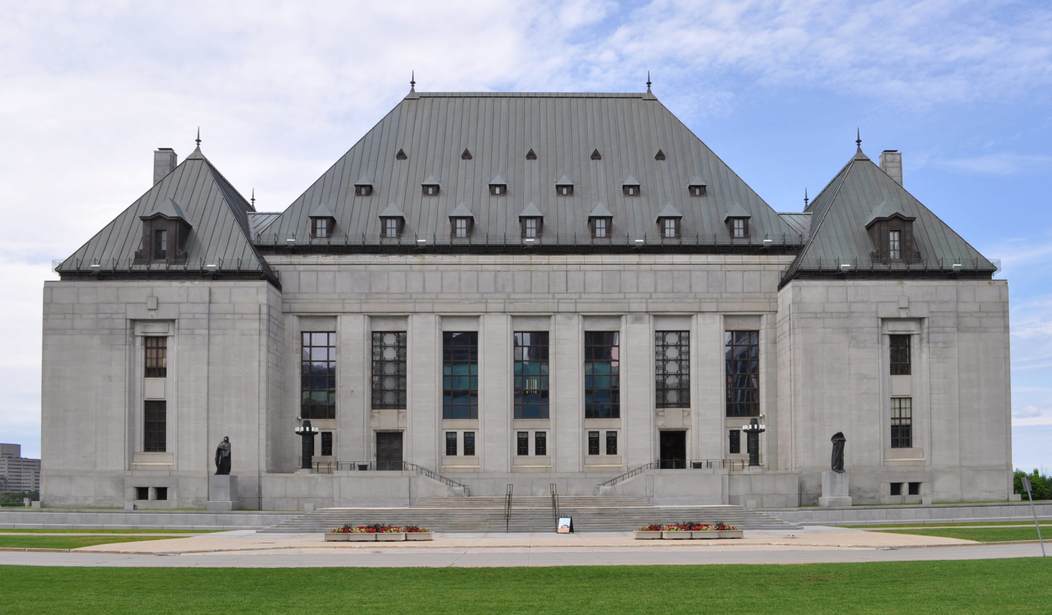On Friday, Canada’s Supreme Court sided with Ontario’s law society, preventing Trinity Western University from establishing a new law school that would be recognized in Ontario. In ruling against the college, the Supreme Court redefined a “Christian environment,” declaring that a code of conduct is of “minor significance” to a Christian institution of higher education. This decision could spell doom for Christian colleges across Canada — and perhaps even threaten the integrity of all sorts of Christian organizations.
Trinity Western University, a private institution of higher education in Langley, British Columbia, requires students to abide by a conduct covenant allowing sexual intimacy only between a married man and woman. Canada’s Supreme Court ruled that such a conduct code would exclude potential law students who identify as LGBT, or cause “significant harm” to those who do attend.
This misrepresentation of the covenant poses a significant threat beyond this case. The argument may start with a proposed law school, but it could undermine other private institutions with traditional codes of conduct regarding sexual morality.
“This limitation is of minor significance because a mandatory covenant is not absolutely required to study law in a Christian environment in which people follow certain religious rules of conduct, and attending a Christian law school is preferred, not necessary, for prospective TWU law students,” the court ruled.
While a Christian environment is indeed possible without a mandatory covenant, a private institution should be able to take efforts to ensure such an environment. The court’s argument that this covenant is of “minor significance” involved the state determining what is or is not necessary to make a Christian environment — a significant overreach into the school’s religious standard.
The court minimized the importance of such a covenant while “balancing” the college’s religious freedom with LGBT students’ equal access to a legal education. In effect, this elevated LGBT claims over a Christian organization’s freedom to determine its own environment, with very little concrete benefit to the LGBT community and a great deal of harm to institutional freedom.
“It is inimical to the integrity of the legal profession to limit access on the basis of personal characteristics,” the court argued. “This is especially so in light of the societal trust enjoyed by the legal profession. The reality is that most LGBTQ individuals will be deterred from attending TWU’s proposed law school, and those who do attend will be at the risk of significant harm.”
“In this case, the effect of the mandatory Covenant is to restrict the conduct of others,” the judges argued. Denying accreditation to the school “prevents the risk of significant harm to LGBTQ people who feel they have no choice but to attend TWU’s proposed law school. These individuals would have to deny who they are for three years to receive a legal education. Being required by someone else’s religious beliefs to behave contrary to one’s sexual identity is degrading and disrespectful” (emphasis added).
Notice the sleight of hand. Christian morality — and this proposed Christian law school — requires celibacy outside of marriage. This code determines conduct, not identity. The Court struck down this code as harmful by redefining conduct as identity. As any heterosexual but unmarried Christian knows, it is possible to refrain from sexual activity without “denying who you are.”
The court suggested that some LGBT people might “feel they have no choice” but to attend the school, despite the fact that Canada has 23 other law schools, three of which are also in British Columbia. The court said that “being required to [abide by the covenant] offends the public perception that freedom of religion includes freedom from religion.”
This is nonsense. A Christian school should be able to determine its own affairs and hold its students to a certain standard of conduct. Since there are other non-Christian law schools, this requirement does not constitute a broad barrier to entry into the legal profession.
Furthermore, the school would not reject applicants who have same-sex attraction, and it applies this conduct code equally to straight and gay individuals. By firmly rejecting this code as discriminatory, the Supreme Court suggested that marriage has no significance and is just an excuse for straight people to get around the covenant’s sexual requirements.
If Canadian courts were to follow the court’s logic, they would have to strike down every such code of conduct at a Christian college, whether it was in the context of establishing a new law school or not.
Trinity Western proposed the law school in 2012 and received approval from the Federation of Law Societies of Canada and from British Columbia’s Ministry of Advanced Education.
Most legal societies — which provide accreditation to law schools, giving their degrees weight in the legal profession — granted accreditation to TWU’s proposed law school. The societies in Alberta, Saskatchewan, Manitoba, New Brunswick, Prince Edward Island, and Newfoundland and Labrador all granted accreditation. The law societies in Nova Scotia and Ontario denied accreditation, and the court sided with Ontario’s law society.
Christian colleges rightly fear that a government endorsement for same-sex marriage could mean that private institutions supporting Christian morality — restricting sexual activity to marriage between one man and one woman — would be forced to abandon their convictions. The callousness with which Canada’s Supreme Court dismissed TWU’s covenant as being “of minor significance” and the vigor the court used to defend same-sex sexual activity as essential to LGBT identity suggest that religious freedom is in extreme danger.
If this covenant was the key reason why Ontario’s law society can deny accreditation to TWU’s proposed law school, what prevents other accreditation boards from stripping other Christian colleges of their ability to award respected degrees? If TWU cannot open a law school due to this covenant, does that mean other Christian colleges will be forced to abandon similar covenants?









Join the conversation as a VIP Member